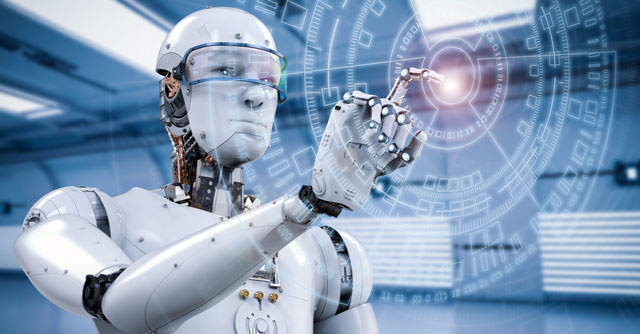
New Delhi, Sept. 18 -- BharatGen, an indigenously developed, government-funded, multimodal Large Language Model (LLM) designed for the Indian language, on Thursday announced a collaboration with IT major IBM to advance the adoption of Artificial Intelligence (AI) in India through sovereign multimodal and LLMs tailored to the country's linguistic and cultural diversity.
BharatGen is a consortium housed under the Technology Innovation Hub at IIT Bombay and backed by the Department of Science and Technology (DST), is tasked with building AI for the nation by developing efficient models for Indian languages, creating multilingual data repositories, and strengthening India's AI talent pool.
The partnership will combine IBM's expertise in AI governance, model training, and enterprise-grade platforms with BharatGen's national mandate to build inclusive, India-centric AI systems. The two will co-develop solution templates for Indic use cases, build scalable data pipelines with open-source tools enhanced for Indian contexts, and establish new benchmarks for Indian languages. IBM's Granite models, Watsonx platform, and Red Hat OpenShift AI will play a key role in the initiatives.
Prof. Ganesh Ramakrishnan, BharatGen explained, "Partnering with IBM brings us global research excellence and scalable architectures, enabling us to design inclusive AI systems for sectors such as agriculture, finance, education, and governance. Together, we aim to drive transformative digital solutions for India's growth."
Sandip Patel, MD, IBM India & South Asia, said, "Through this collaboration with BharatGen, we will advance sovereign AI capabilities that reflect India's diversity and deliver meaningful impact across key sectors of the economy."
BharatGen's roadmap includes developing a family of multimodal and language-specific foundation models to serve diverse national priorities across agriculture, finance, education, healthcare, and governance. A key focus will be the inclusion of underserved Indian languages and dialects to ensure broader digital participation and self-reliance.
Meanwhile, BharatGen has been selected for Phase 2 of the IndiaAI Mission, joining seven other firms - Fractal, Tech Mahindra, Avataar.ai, ZenteiQ.ai, Genloop, Intellihealth, and ShodhAI. This brings the Mission's foundation model initiative to 12 companies, alongside Soket AI Labs, gnani.ai, Gan.AI, and Sarvam.
The move is expected to further strengthen India's open-source AI ecosystem. BharatGen is building sovereign foundational models for developers and researchers, with a focus on underserved languages and voice-first interfaces. Its flagship Param 1 model, a 2.9-billion-parameter bilingual LLM with 25% Indic data, surpasses global peers such as Meta's Llama in local language representation. The consortium has also released 20 speech models across 19 Indian languages on its AIKosha platform to accelerate conversational AI adoption.
India's LLM market is poised for rapid expansion, projected to grow from $329 million in 2024 to USD 2.43 billion by 2030, at a CAGR of over 40%. The broader generative AI market is also set to surge, rising from $1.02 billion in 2024 to $8.33 billion by 2030, underscoring the momentum behind homegrown AI development.
Published by HT Digital Content Services with permission from TechCircle.
